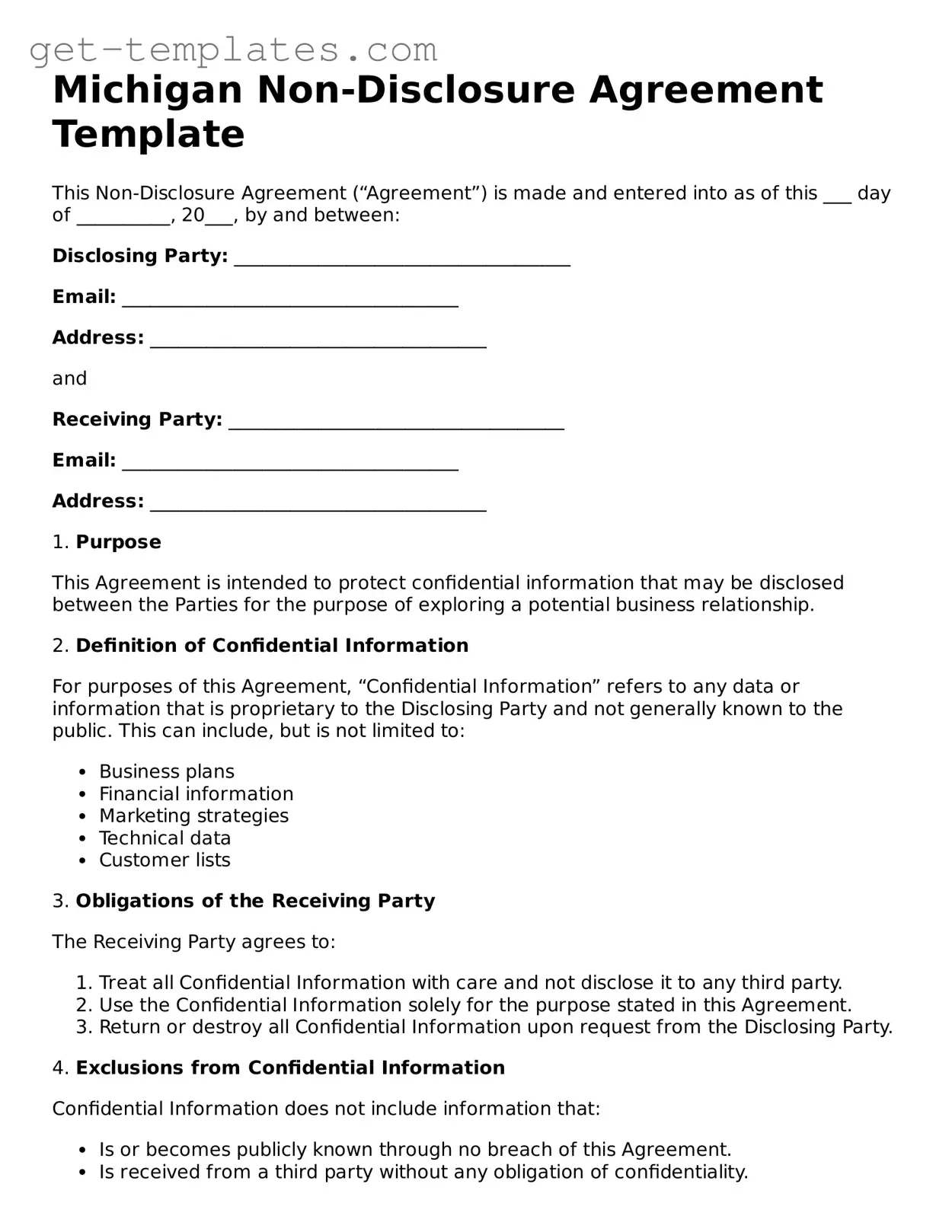Attorney-Approved Non-disclosure Agreement Document for Michigan
A Michigan Non-disclosure Agreement (NDA) is a legal document designed to protect confidential information shared between parties. By establishing clear terms, this agreement ensures that sensitive information remains secure and is not disclosed to unauthorized individuals. Understanding the nuances of this form is crucial for anyone looking to safeguard their intellectual property or trade secrets.
Get Document Online

Attorney-Approved Non-disclosure Agreement Document for Michigan
Get Document Online
You’re halfway through — finish the form
Finish Non-disclosure Agreement online — edit, save, download made easy.
Get Document Online
or
⇓ PDF Form
